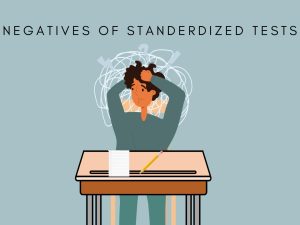How to pass your final exam
Tips from your teachers and peers
January 6, 2015
As this semester is drawing to a close, students should be asking themselves questions about final exams. ‘Should I wait last minute and cram?’ or ‘Should I start working on those review packets?’ Either way, the exams, for most students, are inevitable.
One good way to make sure the student passes a final exam is by studying. Depending on the type of exam, there may be a variety of ways to prepare for it.
According to Jason Johnson, an English teacher and Yearbook advisor, reviewing definitions and what to write for a paragraph is a good way to study for a Humanities class such as English.
“The only way to study for that [English Test] is reviewing literary terms that deal with elements of fiction and poetry,” said Johnson, “The other thing students can do is review the elements of how to write a good body paragraph response. Making sure you have a good topic sentence and that you have two to three good detailed sentences, then elaborate on those details, and then resolve that paragraph.”
Practicing is a good way to start off good studying habits in mathematics.
“Math is a subject [where] you have to practice,” said Melissa Bell, a Math teacher, “I would go over your homework, tests, and quizzes and go over the ones I missed.”
Students can also prepare for final exams by going over study guides, notes, and even tests.
“If I have study guides from [previous] tests, I look over those,” said Meghan Dempsey, a junior at the top of her class, “If my teacher will let me I look back over tests I’ve already taken so I can see what mistakes I made and make sure I don’t make them again. I also save my notes and skim back over them.”
Cramming or reading notes may not be that effective, but practicing and doing examples will.
“I don’t cram,” said Jared Friedl, a senior at the top of his class, “I do practice examples. Just reading won’t really do anything. Make sure you understand it, and if you don’t understand it, do more examples until you do understand it.”
Here are five more tips on how to study for final exams from The Washington Times:
1. Put in the time. Studying in advance may not be such a bad thing. A student could study at least fifteen minutes per night until the day before the test and reviewed what they studied. Don’t cram!
2. Take good notes during class. What a teacher says in their lecture may appear on the exam, so it is important to listen carefully to what the teacher says and pay attention. A student can even put notes in their own words. Also, abbreviate notes.
3. Strengthen your weaknesses. If a student does not know how to do a problem or gets confused on a certain topic, learn how to do it correctly and practice. Students can feel free to practice that topic until they can do it in their sleep.
4. Use the internet. “The internet is a great resource,” Bell said, “You can always find examples, PowerPoints, and tutorials online.”
5. Change your attitude. According to Washington Times, when a student feels negative about a subject, they don’t feel comfortable studying the topic. Students should try to stay neutral about the subject they study. Even a student’s attitude towards studying could use a reality check! Students can keep in mind that studying can lead to good grades.








